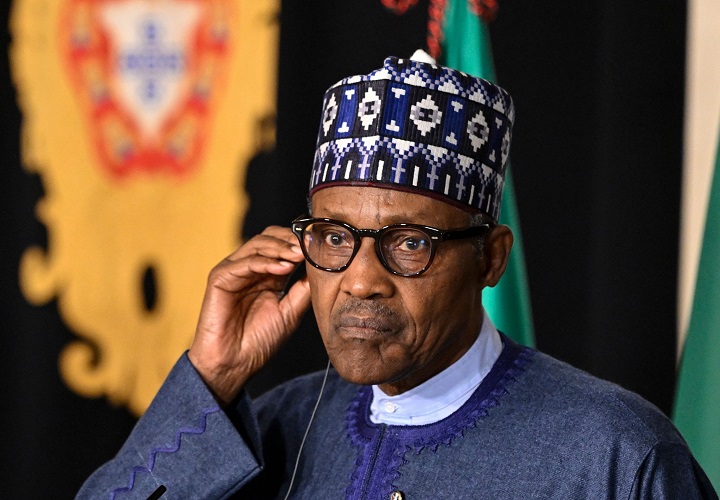The Organised Private Sector (OPS) has acknowledged former President Muhammadu Buhari’s efforts in driving Nigeria’s reform agenda despite facing significant economic turbulence during his administration. According to key stakeholders within the OPS, Buhari demonstrated a firm commitment to structural changes that sought to reposition the country’s economy for long-term stability, even as global and domestic headwinds posed persistent challenges.
In their assessment, business leaders and economic analysts credited Buhari for championing initiatives aimed at diversifying the economy, promoting infrastructure development, and strengthening key regulatory institutions. They argued that while the administration’s reforms were not without shortcomings, they reflected a deliberate policy shift away from oil dependence and toward a more inclusive and resilient economic model.

Among the most notable reforms cited were the implementation of the Treasury Single Account (TSA), the aggressive pursuit of tax compliance through the Voluntary Assets and Income Declaration Scheme (VAIDS), the enactment of the Companies and Allied Matters Act (CAMA) 2020, and the promotion of local content in oil, gas, and manufacturing sectors. These initiatives, according to OPS leaders, played a crucial role in improving transparency, reducing leakages in public finance, and creating a more structured business environment.
The Buhari administration also pushed for agricultural self-sufficiency through the Anchor Borrowers’ Programme, which facilitated access to credit for smallholder farmers. This programme, in conjunction with the Central Bank of Nigeria’s intervention funds, helped to reduce the country’s food import bill, especially in rice and maize. Although concerns remained over insecurity and post-harvest losses, the private sector noted the effort as a meaningful step toward food security and rural development.
Another major aspect of Buhari’s reform legacy, according to OPS, was the focus on infrastructure, particularly in roads, railways, and power. Under the administration, several long-standing transportation projects were revived and completed, such as the Lagos-Ibadan railway, Abuja-Kaduna train service, and the ongoing work on the Second Niger Bridge. These investments were seen as vital in opening up trade corridors and supporting supply chains across the federation.
The OPS, however, admitted that Buhari’s reforms took place against a backdrop of formidable economic challenges, including two recessions, foreign exchange volatility, rising inflation, and global oil price shocks. The COVID-19 pandemic and Russia-Ukraine conflict further disrupted Nigeria’s economic stability, putting pressure on public finances, increasing debt burdens, and straining foreign reserves. Despite these pressures, Buhari’s government maintained a commitment to fiscal discipline and macroeconomic stability, the OPS observed.
Critics have often pointed to the issues of policy inconsistency, bureaucratic bottlenecks, and a tough regulatory environment during Buhari’s tenure. Nevertheless, OPS representatives argued that many of the structural reforms initiated were long overdue and would require time to yield tangible results. They called on the current administration to consolidate on the gains made, rather than reverse critical policy directions.
In terms of regulatory reform, the OPS highlighted the launch of the Presidential Enabling Business Environment Council (PEBEC), which worked to reduce the cost and time of doing business in Nigeria. Efforts such as the digitisation of corporate registration at the Corporate Affairs Commission (CAC), visa-on-arrival policies, and the streamlining of port operations were seen as part of a broader strategy to improve Nigeria’s Ease of Doing Business ranking.
While acknowledging the achievements, the OPS emphasised that more work is needed to foster investor confidence, especially in the face of continued insecurity, forex instability, and inadequate infrastructure. They urged the present government to build on Buhari’s reform blueprint by deepening structural reforms, expanding private sector involvement, and improving regulatory clarity.
The OPS also appealed for stronger collaboration between the government and private sector, stressing that policy design and implementation must reflect the realities of business operations. According to them, reforms must be inclusive, market-friendly, and supported by credible enforcement mechanisms.
Despite the mixed outcomes of Buhari’s economic policies, OPS leaders maintained that his administration laid an important foundation for the future. The reforms, they argued, reflected an awareness of Nigeria’s structural vulnerabilities and a willingness to address them through deliberate and often politically unpopular measures. They noted that Buhari’s legacy in this regard should be recognised, even as his successors confront the continued burden of reforming Africa’s largest economy.
As Nigeria charts a new course under a different administration, stakeholders in the private sector are watching closely, hopeful that past reforms will be sustained, refined, and expanded. They believe that only a consistent and coordinated policy approach can unlock Nigeria’s full economic potential, reduce poverty, and position the country for inclusive growth in the years ahead.
Support InfoStride News' Credible Journalism: Only credible journalism can guarantee a fair, accountable and transparent society, including democracy and government. It involves a lot of efforts and money. We need your support. Click here to Donate
